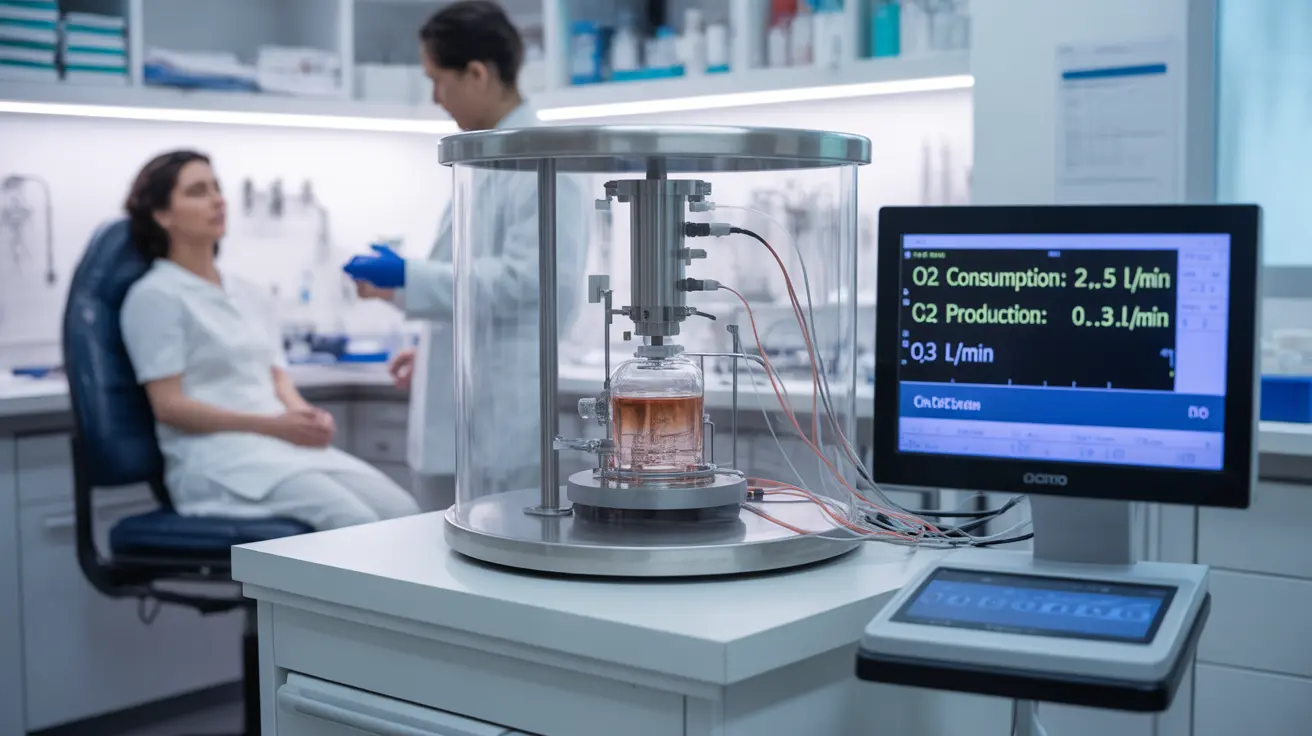Metabolism tests provide valuable insights into how efficiently your body converts food into energy and maintains vital functions. Whether you're looking to optimize your weight management, understand potential hormonal imbalances, or improve your overall health, knowing how these tests work and what they measure can be crucial for making informed health decisions.
In this comprehensive guide, we'll explore different types of metabolism tests, their accuracy, and how to use the results effectively to support your health goals.
Types of Metabolism Testing
Several methods are available for measuring metabolic rate, each offering different levels of insight into your body's energy use:
Direct Calorimetry
This laboratory method measures heat production from the body in a controlled environment. While highly accurate, it's primarily used in research settings due to its complexity and cost.
Indirect Calorimetry
The most common clinical method uses a breathing test to measure oxygen consumption and carbon dioxide production. This can be performed in medical facilities through:
- Metabolic carts
- Handheld devices
- Hood systems
At-Home Testing Options
Several at-home options have become available, including:
- Breath analyzer devices
- Hormone test kits
- Mobile app-connected devices
What Metabolism Tests Measure
A comprehensive metabolism test typically evaluates several key factors:
Basal Metabolic Rate (BMR)
This measures the calories your body burns at rest to maintain basic life functions like:
- Breathing
- Blood circulation
- Cell production
- Temperature regulation
Hormone Levels
Many tests assess important metabolic hormones including:
- Thyroid hormones (T3, T4, TSH)
- Cortisol
- Insulin
Preparing for a Metabolism Test
To ensure accurate results, follow these preparation guidelines:
- Fast for 8-12 hours before the test
- Avoid exercise for 24 hours prior
- Get adequate sleep the night before
- Maintain normal hydration
- Avoid caffeine and stimulants
Using Test Results Effectively
Understanding your metabolism test results can help you:
- Develop personalized nutrition plans
- Optimize exercise routines
- Identify potential hormonal imbalances
- Make informed lifestyle adjustments
- Set realistic weight management goals
Frequently Asked Questions
- What is a metabolism test and how does it measure how my body converts food into energy?
A metabolism test measures your body's energy expenditure by analyzing either heat production or gas exchange during breathing. It determines how many calories you burn at rest and how efficiently your body converts food into energy by measuring oxygen consumption and carbon dioxide production.
- How do at-home metabolism tests work and which hormones do they typically measure?
At-home metabolism tests typically use breath analysis devices or hormone testing kits. They commonly measure thyroid hormones (T3, T4, TSH), cortisol, and insulin levels through saliva, blood spot, or urine samples. Breath analyzers measure oxygen consumption and CO2 production to estimate metabolic rate.
- Can a metabolism test help determine if I have thyroid or hormonal imbalances affecting my metabolic rate?
Yes, metabolism tests that include hormone analysis can help identify thyroid dysfunction and other hormonal imbalances affecting your metabolic rate. These tests can reveal whether your thyroid is under- or over-active and if other hormones are within normal ranges.
- How accurate are at-home metabolism tests compared to those performed in medical facilities?
Clinical metabolism tests using indirect calorimetry are generally more accurate than at-home options. While at-home tests can provide useful preliminary information, they may have a margin of error of 10-15% compared to clinical tests. Professional medical testing remains the gold standard for precise metabolic assessment.
- What should I do to prepare for a metabolism test and how can I use the results to improve my health or weight management?
To prepare, fast for 8-12 hours, avoid exercise for 24 hours, and get adequate sleep before the test. Once you have your results, work with healthcare providers to create personalized nutrition and exercise plans, address any hormonal imbalances, and set realistic health goals based on your specific metabolic profile.




